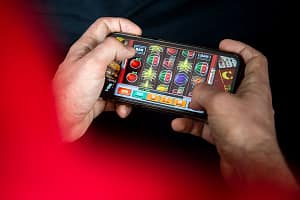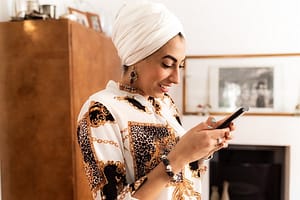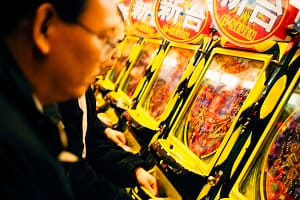British people love their Bingo, and in many of London’s top casinos, it’s still big business. The game of Bingo has developed in many different ways over the decades, most recently becoming a popular online game played by thousands of people from all around the world. Both traditional and online casinos offer thousands of variations of the game with interesting and exciting themes, along with any number of deposit methods to suit all styles of play.
However, the one thing that remains a staple characteristic of the game is funny Bingo calls. Over the years, Bingo callers have consistently tried to come up with new and clever nicknames for the various Bingo numbers as a fun way to entertain their guests. The calls usually include some kind of rhyming or cultural reference to the number in either current or historical media or society.
Some of the most common traditional Bingo number calls include popular ones like “legs eleven” for the number 11, “man alive” for number five and “unlucky for some” for number 13. However, many of the more quintessentially British bingo calls are so strange that they might leave you asking – how did that come about?
Let’s have a gander at some of the more bizarre and confusing Bingo number calls that only the most English of souls would understand.
Number 9: Doctors Orders
During World War 2, army doctors would often give out a laxative pill to sickly soldiers that was called Number 9. It was often prescribed when no other medicine was available and became such a common remedy that soldiers mockingly began referring to it as a ‘cure-for-all’.
Number 10: Theresa’s Den
Meaning the home of Theresa May, this can actually apply to whoever is the UK Prime Minister at the time – simply change the first name and it still rhymes. It is in reference to number 10 Downing Street where the currently serving British Prime Minister resides.
Number 26: Two and six, half a crown
Before the British currency became decimalised into today’s easy to understand format, half a crown was a coin that was worth two shillings and sixpence, which was equivalent to one-eighth of a pound. Confused? Join the club.
Number 38: Christmas Cake
This is just simply a bit of good old cockney rhyming slang. (And yes we know, cake and eight don’t actually rhyme!)
Number 53: Here Comes Herbie
53 was the racing number of Herbie the VW Beetle from the 1963 Walt Disney movie “Herbie, the Love Bug”. It is about a talking VW racing car that has a mind of its own and can drive by itself.
Number 56: Schotts Bus
This refers the number of the bus that used to run between the Scottish towns of Glasgow and Schotts in North Lanarkshire. Why that particular bus route was so popular is unclear.
Number 59: The Brighton Line
59 was originally the first two digits of the Brighton dialling code before the British telephone system changed to its current format. It is also a quote from the play “The Importance of Being Earnest” by famous British author Oscar Wilde.
Number 76: Trombones
A reference to the popular marching song “Seventy Six Trombones” from the Grammy Award winning 1957 musical The Music Man, written by Meredith Wilson.
Number 76: Was she worth it?
Another popular call for the number 76 is “Was she worth it?” in reference to when a British marriage licence used to cost 7/6d, or seven shillings and sixpence which is about one quarter of a pound. That was probably quite a fair bit of money back in 1864.
Number 87: Torquay in Devon
Torquay is a town in the county of Devon. This particular bingo call is used simply because Devon rhymes with seven, although why it couldn’t be any other town in Devon is unclear.
Do you know of any other particularly funny or strange British bingo calls? Let us know in the comments below.






Leave a Comment